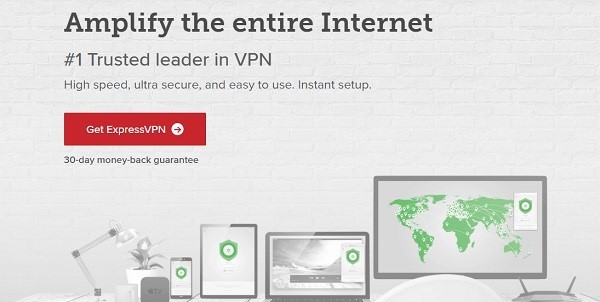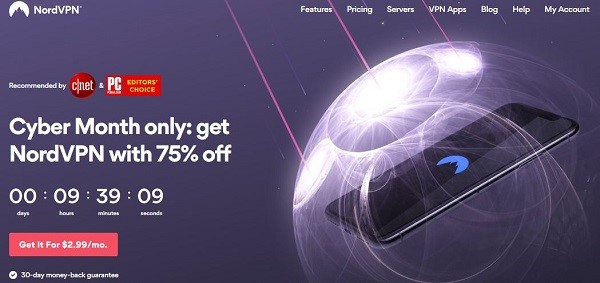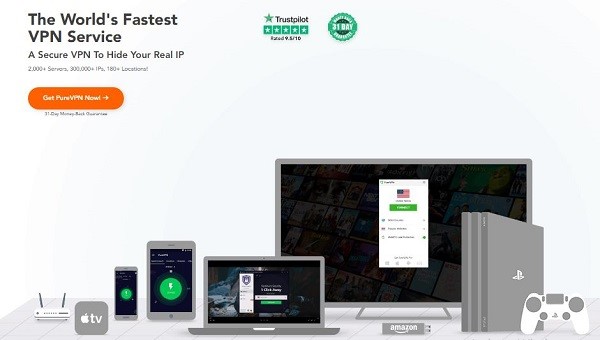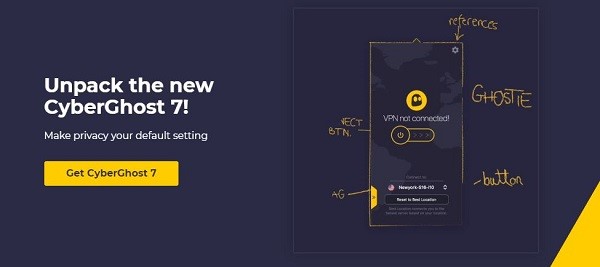When it comes to online banking, it’s extremely important to safeguard our internet connection. Especially when traveling abroad and accessing Wi-Fi networks available in public spaces like malls, coffee shops, or hotels.
After all, if a hacker happens to be on the same Wi-Fi connection as you, he or she can gain complete access to your banking information. In a matter of minutes, a hacker can drain your account and even steal your identity.
But there is a way you can stay safe and access your bank from anywhere in the world. Yes, that’s right. With the help of a VPN, you can encrypt all of your traffic.
In today’s guide, I’ll explain how you can use a VPN to surely access bank accounts abroad while concurrently boosting your online security.
Table Of Content
VPNs and Banking
Virtual Private Networks (or VPNs for short) are software/tools that are typically used to access blocked websites in your country. For instance, your government might have a problem with certain websites and impose restrictions on them, take the situation of Google in China.
Another case is when a service provider is barred from offering their services in a country owing to geo-restrictions. In some instances, service providers are not blocked outright, but the content they can legally offer in any given country is bound by licensing agreements, just like Netflix content in different regions.
In all these cases, a VPN can be used to get past the restriction by connecting to a server location where the website/service you want to open is accessible.
This feature can be put to great use for banking as well when you are traveling and need some money to lock your bank account back home. Likewise, some banking websites require local IP addresses to conduct transactions or even access online banking facilities, making VPNs that more important.
Secure VPNs for Banking
The criteria to be applied for searching for a suitable VPN is dictated by the purpose(s) you wish to use it for. Online banking is arguably the most sensitive activity you could perform since hackers and cybercriminals are looking for easy victims to steal money from all the time.
As such, security is a paramount factor if you aim to use a VPN for accessing banking-related services with it. Keeping this in mind, here are the most secure VPNs you can use for private banking overseas:
1. ExpressVPN

ExpressVPN is arguably one of the most well-rounded VPN services in the market. It offers great speeds and unblocks almost any site from all over the world, all with some of the strongest security you can imagine. If you are looking to access your local banking website with a single click without compromising on your security, ExpressVPN should be your go-to choice, as we also recommend in our ExpressVPN review.
- 3000+ fast servers
- Military-grade encryption technology
- Excellent privacy policy
- Expensive pricing
2. Surfshark

Surfshark uses highly secure techniques for ensuring the security and privacy of user data transferring through their servers. It has a built-in ad and malware blocker for the extra security of users from potentially malicious software.
Surfshark offers obfuscated servers so the servers you are connected to won’t be able to detect that you are using a VPN, which is just ideal if you want to access your bank from some other country. Our Surfshark review explores these aspects of the service in more detail.
- Robust security
- Built-in ad blocker
- Obfuscated servers
- Smaller server network compared to other VPNs
3. NordVPN

NordVPN is a strong VPN service, offering military-grade encryption and tunneling protocols. The service uses AES-256-CBC with a 2048-bit DH key. With an IKEv2 protocol running alongside this encryption, it is almost impossible for a hacker to see your activities or intercept them in some way.
This is why NordVPN is one of the best options you can use for secure online banking. We have rated this VPN highly in our NordVPN review as well.
- Excellent security features
- Zero-logging policy
- 6 multi-logins
- Nothing worth complaining
4. PureVPN

PureVPN is one of the most secure VPNs you can use in the market. It uses AES 256-bit encryption, one of the most standard forms of encryption available today. With a no-logging privacy policy to boot and 2,000+ servers worldwide, PureVPN is a VPN you can trust for secure banking overseas. Our PureVPN Review discusses these features in more detail.
- Solid security
- Variety safe tunneling protocols (OpenVPN, SSTP, IKEv2, etc.)
- Good privacy policy
- It may require multiple attempts to connect to your server
5. CyberGhost

CyberGhost is a Romanian VPN service with an impressive server infrastructure of 6400 servers in 89 locations countries. Using one of its servers, you can connect to your bank from anywhere in the world without running into annoying restrictions. Our CyberGhost review highlights key aspects of this VPN more extensively.
- 6400 servers in 89 locations
- Decent security
- 1-day free tree trail
- Average speeds
How to Access Bank Accounts Overseas
- Subscribe to a secure VPN service like ExpressVPN
- Download and install the VPN on your computer/device
- Enter your credentials to log in
- Connect to a server from the country your bank is located in
- Visit your bank’s official website to perform transactions, transfers, etc.
Note: Make sure the VPN you are using is configured to OpenVPN or IKEv2 protocol. These are the most secure protocols and anything other than that is risky.
Banks and VPN Bans
Many banks ban VPN usage and do not allow a user to connect to the bank’s services via an active VPN connection. This is done as a safety measure since alien IP addresses requesting access to a bank’s website are listed as potential security threats.
Another reason why you might be barred from accessing a bank’s website via a VPN is that cybercriminals might use VPNs to hide their identity to perpetrate theft. This leads some banks to ban all traffic from VPNs to minimize the risk of cybercriminals slipping through.
However, this is only true in the case of some banks. You can use VPNs for overseas banking for most of the banks.
Are Free VPNs Suitable for Banking?
The short answer is a big fat NO.
Expecting a free VPN service to offer adequately strong security to enable safe transactions and banking is like expecting politicians to actually care about the system. It’s just too good to be true.
Free VPNs have shady privacy policies and their security is moderate at best. I would suggest free providers if you were looking for less risk-prone activities, but since the risks involved in online banking can lead to actual, tangible financial loss, you should seriously stay away from free VPNs for your own sake.
Tips for Accessing Overseas Bank Account Securely
- Access only HTTPS websites: The HTTPS protocol for data communication between the browser and website uses end-to-end encryption so that even your ISP can’t see the information you are transferring with the website. Never perform any form of transaction or enter sensitive details on a website (of your bank or otherwise) that does not use HTTPS. All trusted websites use HTTPS (marked by a closed lock symbol in the address bar).
- Carefully choose server location: You must always connect to a VPN server location where your bank is originally located. For instance, if you have an account in some US bank, you must be connected to a US server before you try opening the website. Failing to do so can lead to the blocking of your IP and might even force the bank to freeze your account.
- Use the right tunneling protocols: OpenVPN and IKEv2 tunneling protocols are iron-strong standards that use modern algorithms for the strongest security. Select these protocols in your VPN to gain extra security and rule out all but the most sophisticated forms of cyberattacks, barring you don’t end up clicking suspicious links or accessing insecure websites.
Conclusion
Traveling is doubtless full of fun and merriment. But carrying cash and running out of money while on your trip can spoil the fun. VPNs for secure and private banking overseas offer a remarkable convenience, allowing you to transfer funds to yourself in your destination spot using your bank account from home.
Just make sure you follow a few common-sense tips for security while banking overseas and have a tension-free vacation that you deserve.
